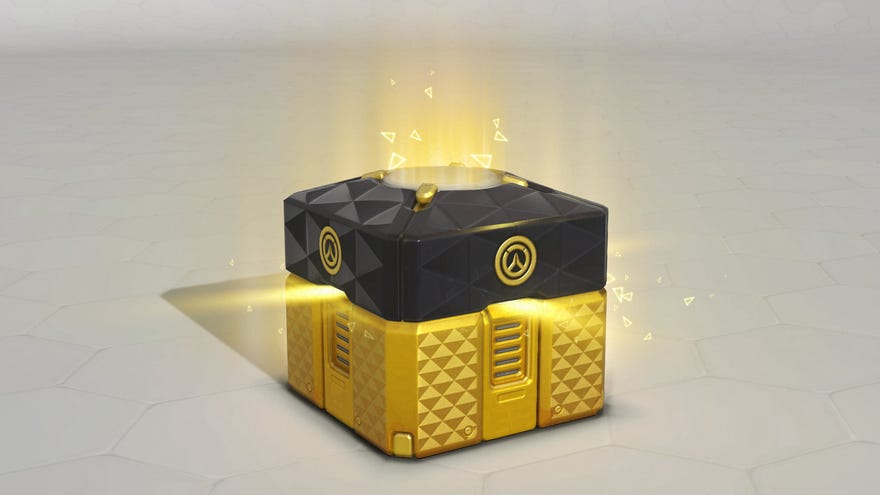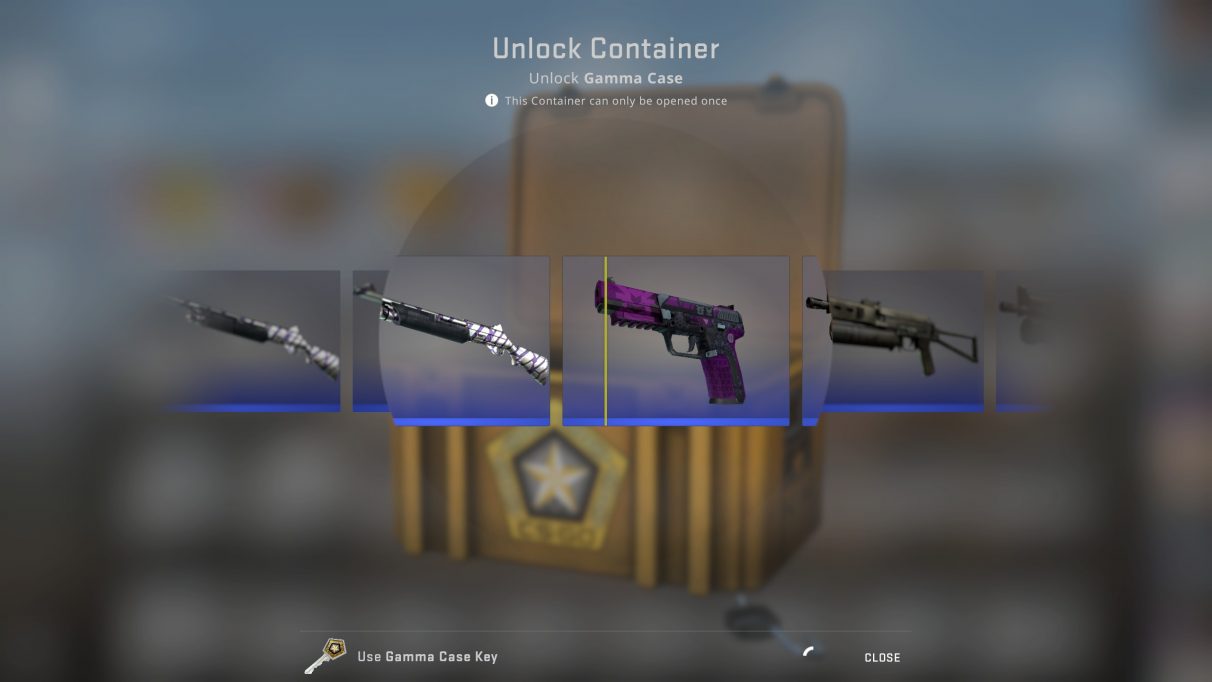Major developers will disclose odds on loot boxes in effort to avoid government regulation
Will this keep The Man at bay?
Publishers including Activision Blizzard, Electronic Arts, and Ubisoft vow to disclose the odds governing loot boxes within their games, the Entertainment Software Association (ESA) have announced. The three main console manufacturers will also require games on their systems to reveal odds, which should have a knock-on benefit for us here on PC too. This news came yesterday, on a day when the US Federal Trade Commission (FTC) held a 'workshop' investigating paid loot boxes. The industry clearly hope that increased self-regulation will placate governments and stop more countries from following Belgium and the Netherlands in effectively banning certain types of loot box as unlicensed gambling.
The ESA said in yesterday's announcement that Sony, Microsoft, and Nintendo "are committing to new platform policies that will require paid loot boxes in games developed for their platforms to disclose information on the relative rarity or probability of obtaining randomised virtual items." They're planning a 2020 launch for those policies, which will still apply if a game adds loot boxes after launch too.
Given that many of the big games released on consoles these days also come to PC too, that alone would likely benefit us. Not as much as replacing loot boxes with less-exploitative systems (I'd take a cosmetic item shop over a loot box any day), but a little.
On top of that, the ESA say numerous big publishers have vowed to disclose those odds in their own games. The list includes Activision Blizzard, Bandai Namco, Bethesda Softworks, Bungie, Electronic Arts, Microsoft, Nintendo, Sony, Take-Two, Ubisoft, Warner Bros, and Wizards of the Coast. Many other publishers have not signed up to the plan, mind.
Disclosing odds is a practice some games have followed for a while now, and one already required by law in China. It's not a huge change, and I wonder if it'll be enough.
The FTC workshop was not intended to write new US government policy, to be clear. It brought together games industry representatives, consumer advocacy groups, academics, and more with a stated goal to "examine consumer protection issues" related to loot boxes. That certainly indicates that The Man is curious, and clearly the ESA saw this as the time to stand up and declare the industry could self-regulate. That has worked before.
When facing increased government scrutiny during the violent video games moral panic of the 90s, the ESA established the Entertainment Software Ratings Board to placate The Man. The industry want governments to believe they can keep games in check themselves (despite this big announcement also being tantamount to admitting they now see their behaviour over the past few years as unethical?) to avoid legislation cutting into this valuable post-launch revenue stream.
Voluntary disclosure is a pretty tame step, and one that's already proved insufficient to some. Facing a legal battle in Belgium in 2018, EA started disclosing loot box odds for FIFA's Ultimate Team 'packs' but the government persisted and EA have since effectively stopped selling FUT packs to Belgian players. The USA tends to be far more approving of companies rinsing vulnerable people, but it's also quite wary of video games.
With tragic mass shootings now commonplace in the USA, video games are again becoming a popular scapegoat in (as The Onion always puts it) the only nation where this regularly happens. President Trump this week decried video games for contributing to "a culture that celebrates violence" (I can think of larger contributing sources) and numerous politicians and commentators have echoed this sentiment.
If the current political climate turns towards a belief that the video games industry's self-regulation of adult content is insufficient, it'll be a whole lot harder for them to convince the government that they should also self-regulate content that some see as allowing underage gambling.
Another eye-catching detail raised yesterday was that as well as paying streamers and YouTubers to hold loot box-opening sessions, as has already been known, it's not unheard of for publishers to offer dishonestly good odds on boxes in openathons.
"I've definitely been in a room where a publisher said, 'We could do better odds on the packs that this person opens for promotional purposes,'" said Omeed Dariani, the CEO of content creator agency Online Performers Group. Polygon report he noted that was only "one time" but y'know, cool, apparently that's a thing.
"As an industry, we take our role in this conversation seriously," the ESA said in their workshop statement. "We plan to underscore to the FTC our industry's deep connection to our community and shared desire to work with policymakers, parents, and players to provide the information they need for a positive game experience."
I must say my own meagre confidence in the ESA hasn't been helped by recent revelations that they've accidentally leaked years of personal information from media members attending E3. Nice one.



